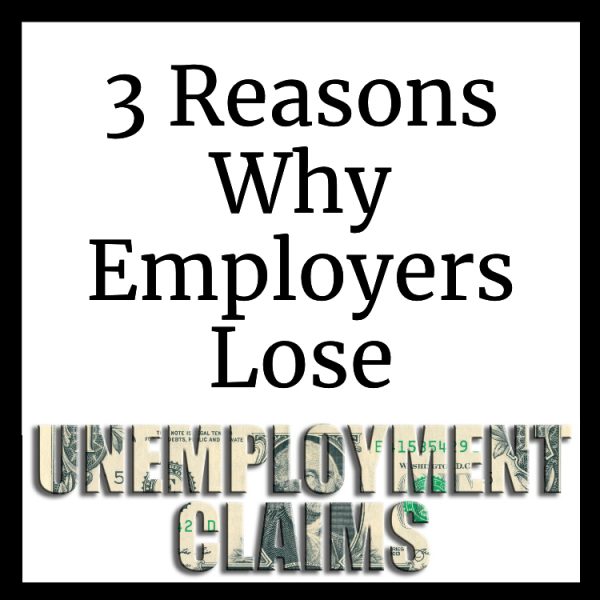When employees leave, employers spend the majority of the resources filling the gap left behind. Unfortunately, they don’t always make sure the T’s are crossed at the moment of employee separation, which can create a problem should an employee decide to file an unemployment claim. If you want to reduce losses from unnecessary unemployment claims there are three things you need to make sure you do.
The Easiest Way to Lose an Unemployment Claim
Employees that leave a company may be eligible for unemployment benefits based on the circumstances under which they were terminated or quit. For example, an employee who is laid off due to a business slow down or budget cuts, typically has a right to receive unemployment benefits. An employee who was fired for intentionally and deliberately engaging in misconduct shouldn’t receive unemployment benefits. But, many do.
Three Reasons Why Most Employers Lose Unemployment Claims
Besides not responding, there are many reasons why employers lose unemployment benefit claims. Here are the top three.
Quality Documentation
Most organizations that lose unemployment claims, lose them over the lack of documentation. They either don’t have it or it’s not complete. The best documentation tells the story of the final incident from beginning to end. Good quality documentation has:
- Policy: A written policy that the organization uses to hire or fire to.
- Signatures: This is evidence that the employee has been trained and understands the policy.
- Witness statements: Witness statements include a narrative of what they saw, signatures, date, and time.
- Incident reports: Incident reports often have details around the incident including who was involved, the narrative of the incident, signatures, date, and time.
- Surveillance: Surveillance is usually in video format. However, many organizations don’t want to share video, so they have the officer complete a narrative describing the incident.
- Chain of custody: Documentation that certain evidence was handled by the appropriate parties responsible for it.
- History: Incident reports and other documentation related to the employee where warnings, training, or communication occurred. Preferably these are acknowledged by the employee with a signature.
First-Hand Testimony
The second primary reason why employers lose unemployment claims is because they don’t show up at hearings. Thorough documentation is critical and usually the only thing required at the first level of unemployment adjudication. However, it doesn’t hold up if the employee appeals, and you move to a hearing.
During the hearing, you’ll need to provide a witness who has first-hand knowledge of the incident. Without one, evidence will be considered hearsay and be dismissed. The good news is that travel is generally not necessary because hearings are usually done over the phone.
Quit in Lieu of Termination
The third common reason why employers lose unemployment claims is because they encourage the employee to quit instead of being fired. They’ll explain to the employee that they’re about to be fired and provide an option for rehire if they resign. Quite often, employees will quit if the employer was going to fire them anyway.
In an unemployment case, the state needs to know who was the moving party to the separation. In other words, who decided it was time to end the employer-employee relationship? In a “Quit in Lieu of Termination” case, the employer is the moving party because they were going to fire the employee. Therefore, the employer must prove the separation was due to misconduct. If they can’t prove it with documentation or first-hand testimony, then the employer will likely lose the case.
Reduce Your Losses
The main reason to prevent an inappropriate claim from being paid is to keep your losses down. If your unemployment insurance is through the state, you’ll keep your tax rate low by having fewer claims on your account. If you self-insure, you’ll see less money leaving out the door paying unnecessary claims.
There are many reasons why cases are won or lost in the unemployment system. Having these three buckled down will help you avoid losing unemployment benefit claims.

